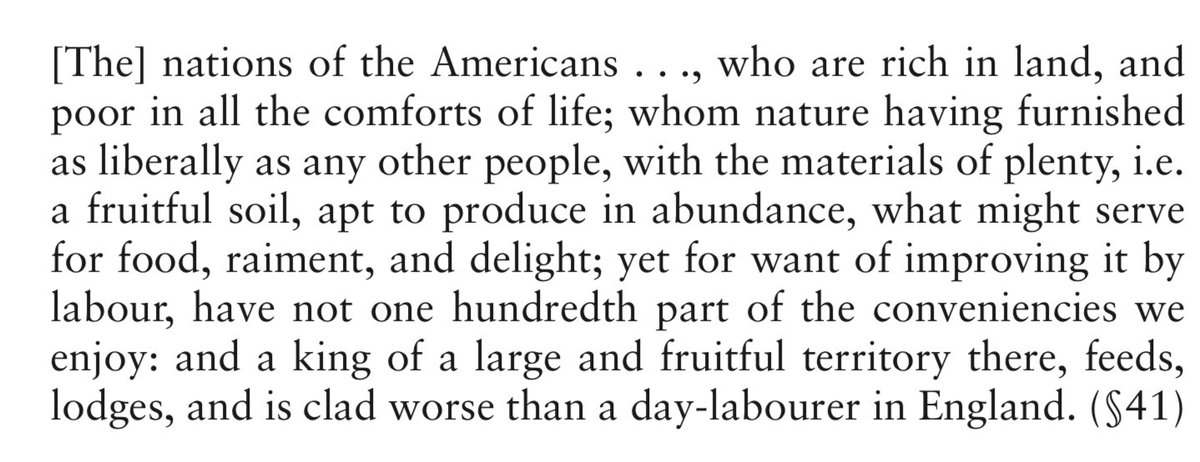Should one delete one& #39;s Facebook profile? This is a difficult ethical question, not one with an easy solution and it highlights the problems of private ownership of public goods - I need to say upfront here that I am a fan of private ownership. Still, problems arise. Thread /1
Joining a social media network is a coordination problem. The benefit you derive from being part of it depends on how many other people are part of it. This is not unique to social media, but also for instance about personal computers (more software if more users) etc. 2/
Here& #39;s an article by philosopher S. Matthew Liao. Just to summarize, he argues the duty to leave FB might arise "Once one recognizes that Facebook has played a significant role in undermining democratic values around the world." 3/ https://www.nytimes.com/2018/11/24/opinion/sunday/facebook-immoral.html">https://www.nytimes.com/2018/11/2...
Okay, you might say, I only ever share cute cat videos on FB. Surely I don& #39;t contribute to the misinformation spread? No, says Liao, because "simply being on Facebook encourages one’s friends to stay on Facebook, and some of those friends might engage in such activities." 4/
Recently, there have been more and more revelations that FB simply has no intention of stopping demonstrably false targeted political ads. Even Google and Twitter have taken steps, but FB is not following 5/ https://www.nytimes.com/2019/11/22/opinion/google-political-ads.html">https://www.nytimes.com/2019/11/2...
This book shows how people who lead FB (not only Zuckerberg) have shown a massive dereliction of duty in how they handled privacy concerns, and how FB has been engineered to create addiction, and thereby enable mass persuasion 6/
https://www.penguinrandomhouse.com/books/598206/zucked-by-roger-mcnamee/">https://www.penguinrandomhouse.com/books/598...
https://www.penguinrandomhouse.com/books/598206/zucked-by-roger-mcnamee/">https://www.penguinrandomhouse.com/books/598...
Lots of my super-progressive friends have no problems using FB, no moral qualms at all, and are incensed when you share a right-wing article but still, by being on the platform, they enable the sharing of such articles (see above). See also this: 7/ https://www.theguardian.com/commentisfree/2019/nov/22/surprised-about-mark-zuckerbergs-secret-meeting-with-trump-dont-be?fbclid=IwAR37cx5Qh3AFnzeKPKD7Jnywtv8bDX7MhyffUEnYLrR019Kkpb1QGNRc7EQ">https://www.theguardian.com/commentis...
How does this relate to private ownership? John Locke, the 17th c philosopher, argued that you can have private ownership of something you find, provided there& #39;s enough left for others, or by working on nature (mixing your labour with it). 8/
https://en.wikipedia.org/wiki/Two_Treatises_of_Government">https://en.wikipedia.org/wiki/Two_...
https://en.wikipedia.org/wiki/Two_Treatises_of_Government">https://en.wikipedia.org/wiki/Two_...
This "Lockean proviso" is not so innocent. In this intriguing book, Widerquist and McCall argue that Locke& #39;s argument was used to legitimize taking land from Native Americans, the idea being that private property is better than public property (commons) 9/ https://global.oup.com/academic/product/prehistoric-myths-in-modern-political-philosophy-9780748678662?cc=us&lang=en&">https://global.oup.com/academic/...
Here& #39;s the disturbing passage on why Locke thinks it& #39;s cool to take away land from Native Americans... Okay, this is a digression but I do think this relates to Facebook in the following way 10/
Locke thought that commons = bad. Without private ownership, you& #39;re in a miserable state of nature that lacks comfort (not quite the Hobbesian war of all against all, but still miserable). Private property = good. You can have nice things.
Now to social media. 11/
Now to social media. 11/
On the one hand, Facebook is being used as a commons. And demonstrably, having this interface has made people& #39;s lives better. For example, people who are vulnerable in the public sphere or lack support and solidarity use FB to organize and to empower each other. Good things 12/
And that is why I am hesitant to delete my FB profile. It is a public arena in which we can share ideas. It is a public good. And the private enterprising works of Zuckerberg et al have made this possible. They& #39;ve mixed, in Lockean terms, their labour with nature 13/
But Locke did not foresee that something like this could happen: we have a public good in unaccountable private hands, and our governments unwilling or unable to reign it in. 14/
You might say: no problem. If you don& #39;t like FB, then just go elsewhere. But that& #39;s the problem of social media giants. Because they are semi-public goods, leaving creates huge opportunity costs, as the coordination problems involved in shifting to another forum are huge 15/
If I don& #39;t like my coffeemaker, I buy another coffeemaker. If people don& #39;t like their government they can (if it& #39;s a democracy) vote them out. But I can& #39;t vote the FB management out. I can even shift computer if Apple continues making subpar, underpowered Macbook Pros 16/
But if I don& #39;t like what FB is doing in allowing demonstrably fake political ads to be micro-targeted, how am I to show my discontent? Even my personal leaving won& #39;t affect FB that much. There is zero accountability, and governments refuse to step in. 17/
Maybe a mass coordinated deactivation would wake them up. If enough people leave, this might make them finally reconsider their awful role in the democratic process. The Lockean justification for private ownership is that there& #39;s enough left or you can go elsewhere 18/
And maybe that& #39;s what we need to do and bite the bullet. So I& #39;m posting most of my semi-public content now on this ad-free forum (yes, I know there are anti-vaxxers etc there but at least there are no targeted political ads).
https://mewe.com/i/helendecruz ">https://mewe.com/i/helende... /end
https://mewe.com/i/helendecruz ">https://mewe.com/i/helende... /end

 Read on Twitter
Read on Twitter


